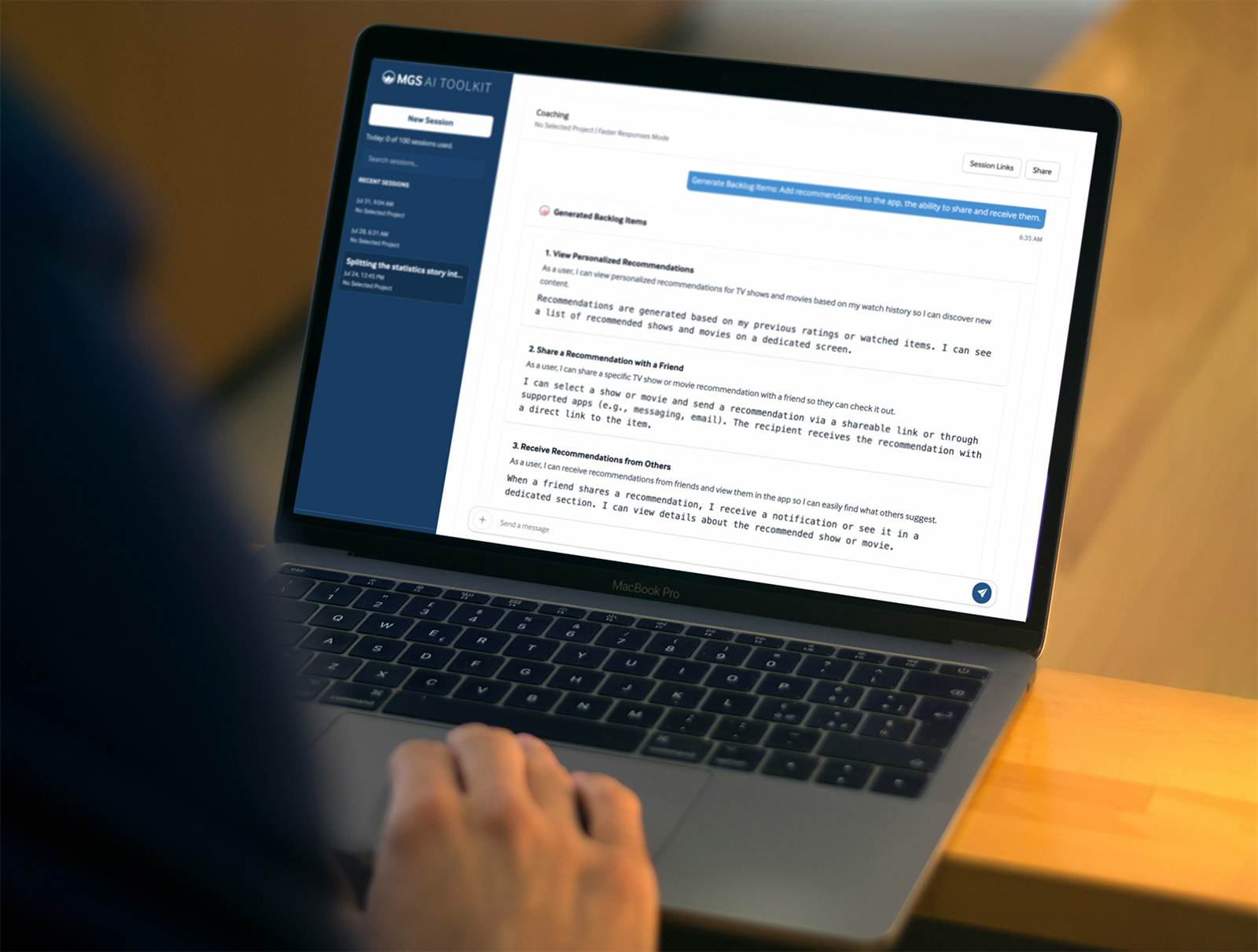What You'll Be Able to Do
Apply story points, planning poker and affinity estimating to achieve meaningful forecasts.
Estimate those unknowns: how to handle large, uncertain backlogs and emerging work.
Communicate plans clearly to stakeholders: explain story points, justify estimates and answer tough questions.
Why Choose Accurate Agile Planning
Many agile teams struggle to answer “how much by when?” This course shows you how to create plans you can confidently share with stakeholders.
After this course you’ll be able to split, estimate and prioritise backlog items, ensure your forecasts align with business goals, and explain your thinking clearly to non-technical audiences. By the end of the day you’ll have the tools to turn complexity into clarity, and uncertainty into actionable plans.
I enjoyed the workshop. My knowledge also sharpened, and I could formulate all kinds of conceptual ideas.
Llana Vaiman Naftulin
As a coach, I'm always seeking more effective ways to ask questions. The concept of quantifying and naming the unknown backlog from the team's perspective-"How much of the solution do you see?"-resonated with me. It's a powerful approach to understanding the team's vision and clarifying uncertainties.
 Selfi Alfar
Selfi Alfar
Really enjoyed your agile planning training today. It was very informative and provided me with some great options for helping teams and clients get better at planning projects
 Angela Anderies
Angela Anderies
I’m happy to share that I’ve obtained a new certification: Accurate Agile Planning from Mountain Goat Software! Thank you Mike Cohn, for creating and facilitating a fantastic course that is necessary for anyone that has to answer the eternal question, "When can I have. . .?"
 Yvette Fernandes
Yvette Fernandes
A Unique, Interactive Learning Experience
Team Home is a collaboration platform that we designed for our courses. It is optimized for live, online training. Participants benefit by collaborating in ways beyond what is possible with generic whiteboard software such as Mural or Miro. Instructors can observe activity across all rooms, improving the effectiveness and efficiency of exercise debriefs.

Access Our Resources, Planning Poker® and AI Toolkit
Expanded access to MGS Essentials, included with your trainining, is your toolkit for doing agile better, with resources that help you and your team move faster, plan smarter, and deliver more value.
Access live events, video lectures, and a powerful set of tools including online Planning Poker®, the Elements of Agile assessment and AI tools for coaching, story splitting and backlog item generation.

Upcoming Public Training
|
–
|
with Lance Dacy | – | $599 | Register |
Course Includes:
Certification Credits
Course Outline
What Is Agile Planning?
- Good Plans Lead to the Right Decisions
- Why Estimating in Person-Days Does Not Work
Estimating with Story Points
- What Story Points Are
- Using an Appropriate Scale
- Five Types of Estimates and Which Works
- Planning Poker and Affinity Estimating
Milestone (Release) Planning
- Fixed-Date Plans
- Fixed-Scope Plans
- Fixed-Everything Plans
- Estimating Velocity
- Estimating Velocity Without Data (or Even a Team)
Planning for What You Don’t Know
- Why Your Product Backlog Is Bigger than You Think
- Estimating the Unknown Backlog
Buffering Critical Plans
- Don’t Pad a Plan but Buffer What Matters
- Why Two Estimates Are Better (and Faster) than One
- Measuring Risk
- Creating the Buffered Plan
Getting Faster and Better at Estimating
- Seven Things to Do to Get Better, Faster Estimates
- Four Things to Stop Doing
Communicating about Estimates and Plans
- Explaining Story Points
- Explaining What Makes a Good Estimate or Plan
- Answering Questions about the Plan
Your Instructor
Mountain Goat has handpicked instructors that share our training values. These are people with deep experience, who are leading teams with agile today and can give you real-world answers about what does and doesn’t work.
Lance Dacy
As a Certified Scrum Trainer, Lance has trained and coached teams through many successful Scrum implementations since 2011, from Fortune 20 companies to small start-ups. Lance is also experienced in showing agile coaches and managers how to help cross functional, self-organizing teams deliver high value for customers as early as possible by using Scrum.
Read more...Lance is a true evangelist for Scrum, having founded the successful DFW Scrum User Group in Dallas as an outlet for professional networking and a community sounding-board for Scrum. He has a fun and generous personality, and shares his passion for Scrum in every course.
Scrum Certifications include: CSM, CST, CSPO, CAL-1, A-CSM, A-CSPO, CSP-SM, CSP-PO, Path to CSP Educator, Scrum Foundations Educator.
Got a Question?
What happens when you contact us?
- We’ll get back to you within a day.
- Answer your training questions and discuss any custom needs.
- Recommend the best agile training path for your teams and goals.
- Want to talk to someone? Schedule a call.

